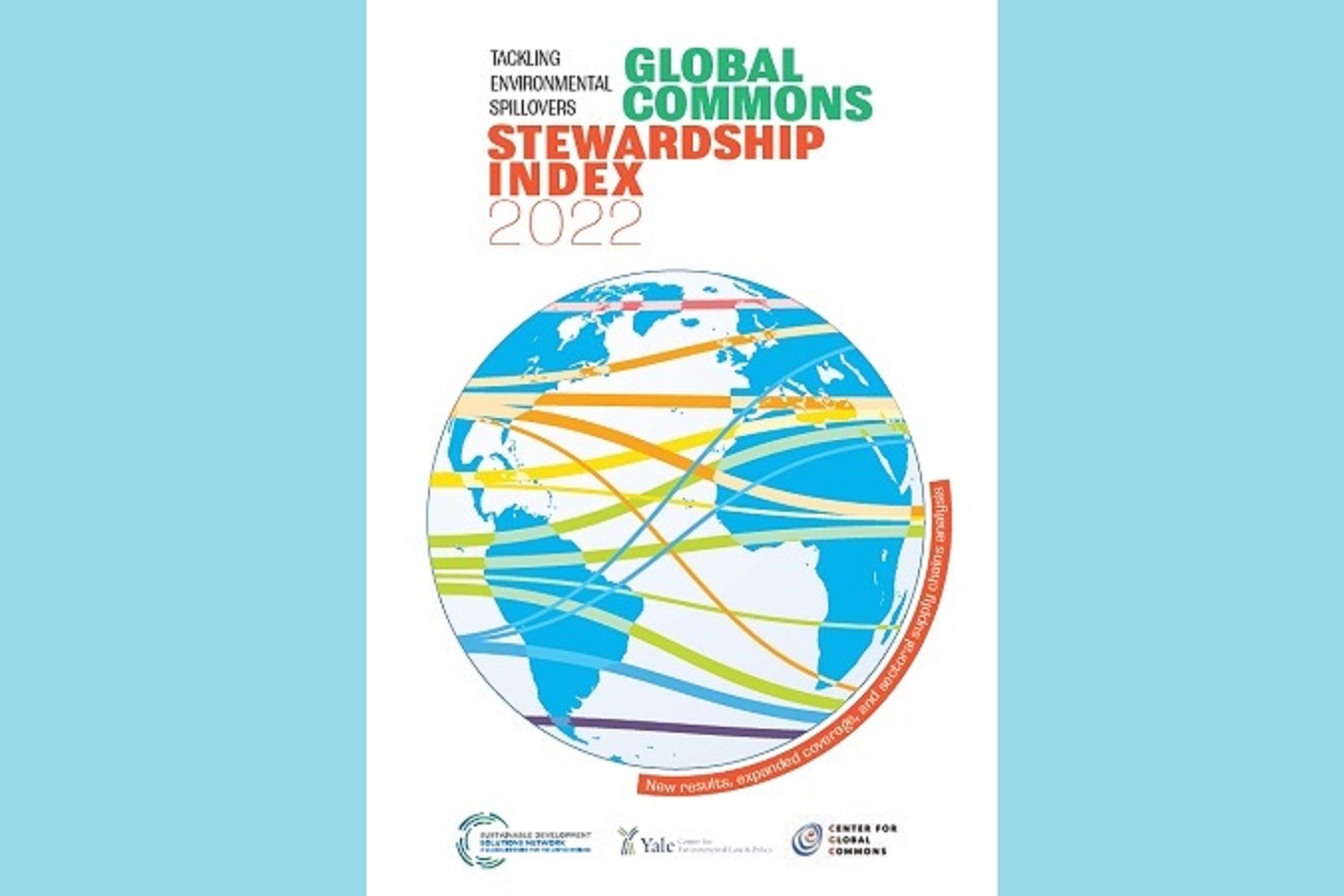G20 countries must curb their negative international spillovers to restore the Global Commons New report by the Center for Global Commons and the UN Sustainable Development Solutions Network tracks countries’ domestic and spillover impacts on the Global Commons and identifies responsible supply chains

According to a new report from the Center for Global Commons (CGC) at the University of Tokyo Institute for Future Initiatives and the UN Sustainable Development Solutions Network (SDSN), the Global Commons – stable and resilient earth system which consists of, for instance, the climate system, the land biosphere, and oceans – are increasingly at risk, and actions are needed now. This year’s 2022 Global Commons Stewardship (GCS) Index (3rd edition) provides the latest information on countries’ domestic and international spillover impacts on the Global Commons. This year’s edition reveals that no country has successfully managed to achieve high levels of human development (measured by GDP per capita or the Human Development Index) while fully mitigating their negative impacts on the environment. Rich countries, including many G20 countries, generate large negative spillovers due to unsustainable consumption and obtain the lowest results in this year’s Index. These results suggest that economic systems and national policy frameworks need to better incorporate the value of natural capital – and the costs of failing to protect it – to address international spillovers.
Taking advantage of the latest advances in trade data, environmental research, and industrial ecology, the 2022 GCS Index provides detailed analyses of impacts embodied in international trade flows. Demand for clothing, textiles, and construction materials drives most greenhouse gas (GHG) emissions spillovers. Deforestation spillovers are driven by the demand for forestry, logging, and cattle, and water stress spillovers are driven by the demand for rice and cereals.
Professor Naoko Ishii, Executive Vice President of the University of Tokyo, inaugural Director for the Center for Global Commons, and lead author of the report, emphasizes the following: “Safeguarding the Global Commons requires actions from both producing countries and consuming countries. This requires two things; first to make targets not only from domestic production but also consumption viewpoints, and second to take actions towards valuing natural capital and incorporating it into economic decision making.”
Mr. Guillaume Lafortune, Vice President of the SDSN and co-author of the report, adds: “Negative spillovers embodied into various unsustainable supply chains must be curbed through ambitious policies, investments, and global cooperation. The G20 presidencies of India (2023), Brazil (2024), and South Africa (2025) can provide momentum for concerted global actions and further efforts to reduce negative impacts on the Global Commons in producing and consuming countries to the benefit of the people and earth systems.”
The report calls for additional efforts to build strong data systems at various levels – international, national, industrial, and corporate – building on the latest technologies to monitor and curb negative impacts on the Global Commons.
The GCS Index is part of a larger suite of instruments and reports prepared under the leadership of the Center for Global Commons at the University of Tokyo Institute for Future Initiatives since 2020, in cooperation with SDSN, SYSTEMIQ, the Potsdam Institute for Climate Impact Research, the World Resources Institute, and the Yale Center for Environmental Law & Policy, to inform data and policy priorities to safeguard the Global Commons.
The report, database, and country profiles can be accessed here.
- The Global Commons Stewardship Index 2022

- The Global Commons Stewardship Index 2021

- The Global Commons Stewardship Index 2021 assesses 100 countries

- Introduction of Global Commons Stewardship Index in a book published by OECD

- Report on the pilot version of the Global Commons Stewardship Index (GCSi) was released

The University of Tokyo Institute for Future Initiatives
Center for Global Commons
E-mail: info.cgc[at]ifi.u-tokyo.ac.jp
*Please replace [at] with an @ mark.





